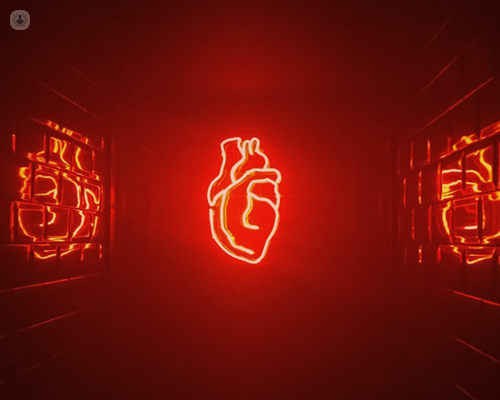What's involved in a cardiac MRI imaging appointment?
Written in association with:A cardiac MRI (magnetic resonance imaging) is a non-invasive test that uses powerful magnets and radio waves to create detailed images of the heart and surrounding blood vessels. It is often used as gold standard test to assess the structure and function of the heart, diagnose heart conditions, or monitor the progression of diseases.
In this article, leading consultant cardiologist Dr Marco Spartera tells you what you can expect during a cardiac MRI appointment.

What happens before the appointment?
- Preparation: Generally, there is no special preparation required for a cardiac MRI. However, you may be advised to avoid caffeine on the day of the test depending on whether you are undergoing stress perfusion imaging
- Medical history: Before the scan, you will be asked about any metal implants, pacemakers, previous surgery, or other implanted electronic devices, as these can interfere with the MRI. It is important to inform your healthcare team about any such devices before entering the magnet. Allergies to the contrast should also be mentioned (beware: the MRI contrast is different from the CT contrast and you should be safe if you had allergy to the latter)
- Clothing: You will likely be asked to change into a hospital gown and remove any metal jewellery or ferromagnetic accessories. Personal items such as watches, keys, or phones should also be left outside the MRI room.
What happens during the scan?
- Positioning: You will lie on a sliding table that moves into the MRI machine, which is shaped like a large cylindrical tube. The technician will position you so that your heart is in the centre of the machine’s magnetic field.
- Monitoring: Small electrodes will be placed on your chest to monitor your heart rate throughout the scan. You may also have a blood pressure cuff and occasionally oxygen monitor attached to track your vital signs.
- Contrast dye: In some cases, a contrast agent (gadolinium) is injected into a vein in your arm to improve the clarity of the images. This helps highlight whether there are areas of scarring fibrosis within the heart muscle as well as to diagnose blood clots within the heart chambers.
- The scan itself: The MRI machine makes loud tapping or thumping noises during the scan, however, you will be provided with earplugs or headphones to reduce the noise. The scan typically lasts between 30 and 90 minutes, depending on the complexity of the images required.
What happens after the scan?
- Results: The images are analysed by a radiologist or cardiologist with special certifications who will interpret the results and share them with your doctor. The findings may help in diagnosing conditions such as heart valve disease, cardiomyopathy, congenital heart defects, or coronary artery disease.
- Follow-up: If any issues are identified during the MRI, your doctor may recommend additional tests or a treatment plan based on the findings.
A cardiac MRI is a safe and effective way to get a detailed view of the heart’s structure and function without exposing you to radiation.
Do you require expert cardiology treatment? Arrange a consultation with Dr Spartera via his Top Doctors profile.


